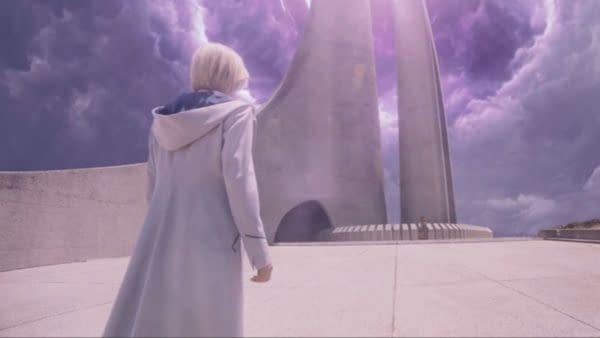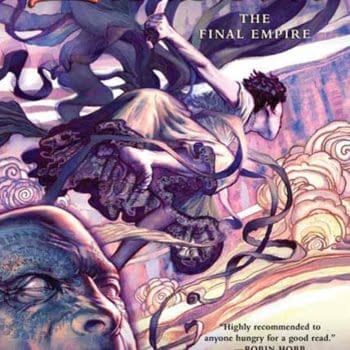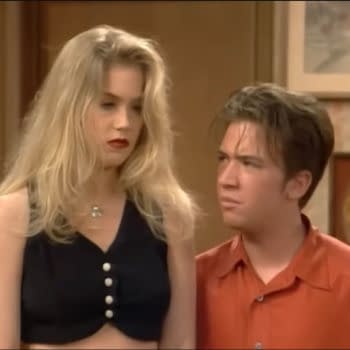Posted in: BBC, Doctor Who, Opinion, TV, TV | Tagged: bbc, chris chibnall, doctor who, russell t davies, sfx
Doctor Who: How "The Timeless Child" Did The Show a Timeless Favour
Some fans hate "The Timeless Child" idea in Doctor Who, but it's an idea that did the BBC show a huge favour by making it timeless now, too.
Article Summary
- "The Timeless Child" retcon in Doctor Who has made the show truly timeless.
- Russell T. Davies, the returning showrunner, is embracing the "Timeless Child" storyline and has gone on record saying he won't change it.
- The concept resolves continuity issues, provides infinite stories, and allows for endless regenerations for the Doctor.
- Uniquely among franchises, Doctor Who's timeless nature ensures its story can forever continue evolving.
The "Timeless Child" is a retcon to Doctor Who lore that many fans seem to hate, and recently, returning showrunner Russell T. Davies declared that he would not write it out of continuity or canon. Previous showrunner Chris Chibnall dropped the big surprise in the Doctor's origin story during "Flux," where he revealed that The Doctor was a child who showed up in Gallifrey from an unknown place and was immortal, introducing the ability to regenerate to Gallifreyan society that enabled the whole race to live forever long enough to discover time travel and form Time Lord society.

"Let's stare that question right in the eye. I'm not going to unwrite my good friend Chris Chibnall's work on 'The Timeless Children,'" Davies said in an interview with SFX. "I'm not going to deny what he wrote. I'm going with it. It's absolutely fine."
The idea of the Doctor being a special who influenced all of Time Lord society is a twist on past story editor Andrew Cartmel's so-called masterplan back in the 1980s that was never realized due to the show's cancellation in 1989. That never became canon, but the "Timeless Child" now is. And that's a good idea for the show overall. Why?
First, it answers a lot of continuity errors and contradictions from the series' past when the writers pretty much made things up as they went along just to have something to put in the story. Second, it gives The Doctor an infinite number of past lives and stories for writers to draw on or make up if they feel like it. Third, it gives the show the chance to run forever because The Doctor no longer has only thirteen regenerations. The Doctor has an infinite number of regenerations, so the BBC can keep producing it, resting it, and bringing it back in the future if it so chooses. Doctor Who practically becomes a new show – with the same premise – every time a new Doctor takes over. For an international success that's worth at least $100 million for the BBC, that makes it an invaluable piece of Intellectual Property on top of a limitless creative format for any writer. Every franchise story has an ending built into it – Superman and Batman are mortal, and their stories have an ending. Not Doctor Who, which is the only Forever Series in existence. It's a Whoniverse now – the "Timeless Show."













